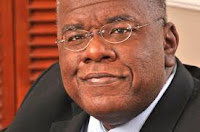 Someone came to look at the books. They took some they didn't have copies of, I kept a few, including the two volume: "Jerusalem of Lithuania" (about the Jews of Vilna) and my sister took a copy of the Rakishok (Rokiskis) Yiskor-buch, but what of the rest? The person said we pack up the rest and when we have enough to fill a container or half or whatever, we send them to a Book Centre in Amherst, Massachusetts. It seemed a bit sad that no-one would want them in South Africa (quite a few had originally come from the Western Hemisphere already - Argentina no less) but it was comforting to know that we didn't have to throw them away or bury them - something Jews do with worn out prayer books.
Someone came to look at the books. They took some they didn't have copies of, I kept a few, including the two volume: "Jerusalem of Lithuania" (about the Jews of Vilna) and my sister took a copy of the Rakishok (Rokiskis) Yiskor-buch, but what of the rest? The person said we pack up the rest and when we have enough to fill a container or half or whatever, we send them to a Book Centre in Amherst, Massachusetts. It seemed a bit sad that no-one would want them in South Africa (quite a few had originally come from the Western Hemisphere already - Argentina no less) but it was comforting to know that we didn't have to throw them away or bury them - something Jews do with worn out prayer books.And that was pretty much all I knew or bothered to find out until a friend lent
me "Outwitting History", Aaron Lansky's account - both hilarious and moving - about saving a whole culture before it got thrown in the trash by hiring trucks, donning gloves and doing the hard dusty work of saving Yiddish books from attics, basements and garages all over the United States and beyond. Then subsequently setting up in a specially designed building, the Yiddish Book Centre.
I've forgotten most of the Yiddish I learnt that summer in 1982 but the impact of what it meant to me to study it has stayed with me to this day. It was a form of cultural liberation. I wrote about the experience shortly after, in a booklet that some of us in the London Jewish Women's History Group published







